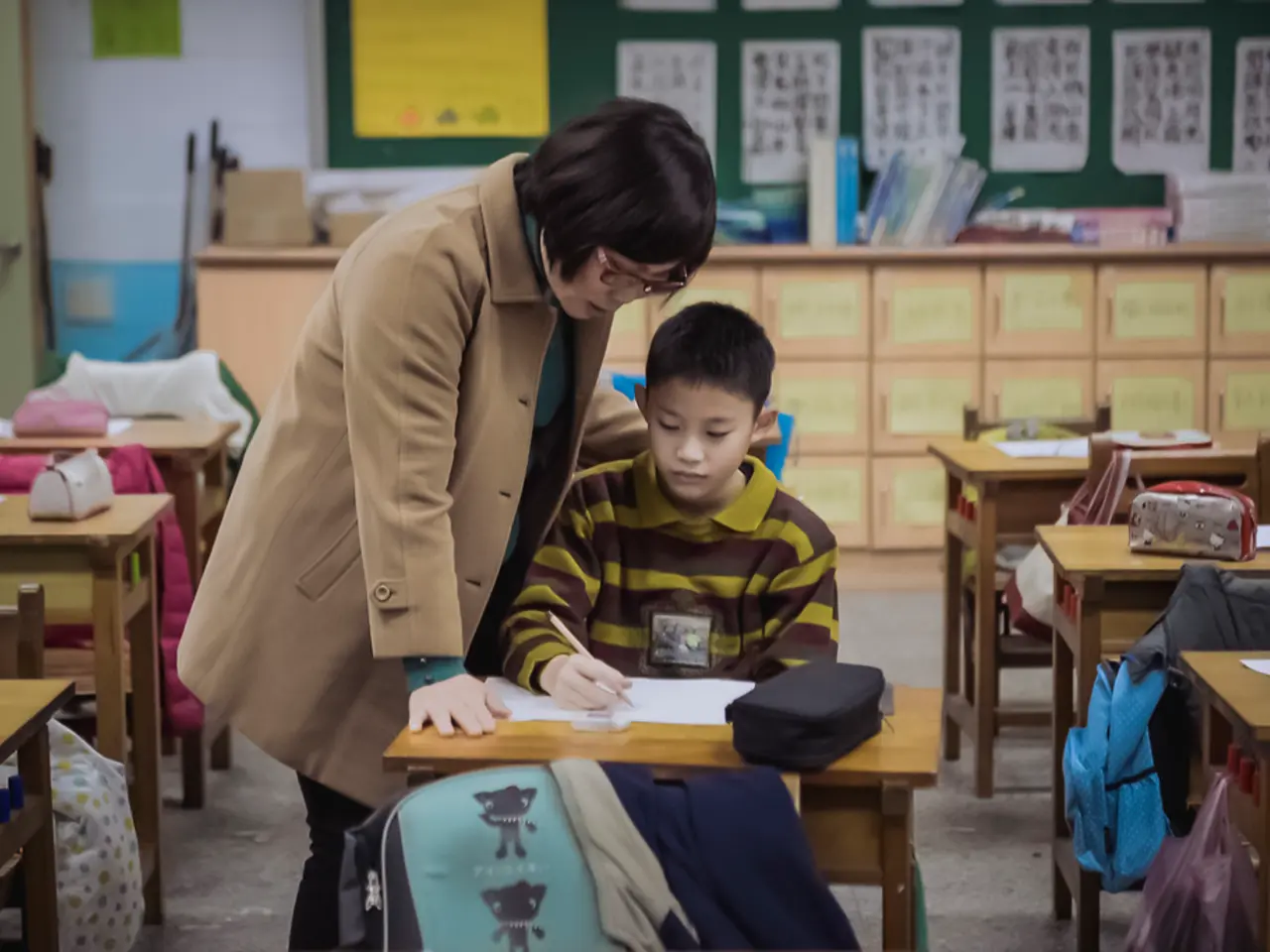Strategies for Successfully Creating Engaging Lesson Plans for Teachers
Curriculum development for educators is undergoing a significant transformation, driven by evolving educational technologies and societal needs. The focus is now on personalized learning, interdisciplinary teaching, AI integration, and the incorporation of soft skills.
Personalized Learning
Modern curricula are increasingly using AI-powered tools to tailor educational content to individual student needs. Generative AI technologies enable adaptive learning by identifying and addressing knowledge gaps, tracking progress comprehensively, and facilitating inclusivity by adapting materials for diverse learners, including those with disabilities.
Interdisciplinary Teaching
The interdisciplinary approach encourages critical thinking and creativity, connecting technical skills with broader societal and ethical issues. This method fosters collaboration across fields, with Industry 5.0 concepts further promoting the link between human creativity and technological innovation in educational design.
Artificial Intelligence
AI is shaping curriculum content and delivery, not only by generating educational materials but also through virtual avatars and emotion recognition to adapt teaching dynamically. AI-driven chatbots support student academic life, providing timely information and assistance. Graduate programs in AI are innovating by combining practical technical skills with ethics, social responsibility, and interdisciplinary collaboration to prepare socially conscious professionals.
Soft Skills Incorporation
Modern curricula embed soft skills like professional responsibility, ethical awareness, societal concern, and critical thinking alongside technical training. This integration aims to cultivate holistic graduates capable of navigating complex social and professional environments.
In addition to these trends, districts are adopting multiple curriculum programs to enhance instructional coherence and quality, reflecting a move away from lower-rated materials to research-backed content. Governments are also pushing vocational education aligned with workforce needs.
Evaluating and assessing curriculum effectiveness involves systematic data collection and analysis to measure student performance and engagement within the curriculum framework. However, challenges persist, such as aligning content with educational standards, addressing diverse student needs, resource allocation, and keeping up with changes in educational technology and methodologies.
Professional development for educators encompasses ongoing learning opportunities designed to enhance teaching skills and improve student outcomes. Differentiating curriculum for diverse learners involves tailoring the educational experience to meet the varied needs of students, employing strategies for inclusion, and addressing different learning styles.
Educators play a vital role in this alignment, collaborating with curriculum developers, administrators, and stakeholders. To achieve effective alignment, educators must continuously review and revise their curriculum in response to evolving standards. Incorporating strategies for inclusion in curriculum development promotes an equitable education, fostering a classroom atmosphere where all students feel valued and capable.
Integrating technology in curriculum development enhances teaching and learning processes, creating dynamic and interactive learning environments. Central to this framework is the identification of learning outcomes that educators aim to achieve. Curriculum development is a systematic approach to designing educational programs that meet diverse student needs, with addressing different learning styles being crucial.
Collaboration among educators, curriculum specialists, and stakeholders is essential in this process. Aligning curriculum with standards involves integrating national, state, or institutional frameworks that outline the knowledge, skills, and competencies expected of students at various levels.
In summary, curriculum development for educators is moving toward AI-enhanced, personalized, interdisciplinary frameworks that balance technical proficiency with essential soft skills to prepare learners effectively for future challenges.
- In the context of modern education-and-self-development, e-learning platforms are increasingly adopting artificial intelligence (AI) to provide personalized learning experiences for students, tailoring content based on individual needs, and addressing diverse learners.
- Beyond just technical skills, professional development for educators emphasizes the integration of instructional strategies that foster students' personal growth and soft skills, such as critical thinking, ethical awareness, and professional responsibility, to cultivate holistic graduates ready for complex social-and-professional environments.
- As technology continues to transform education, collaborative efforts among educators, curriculum specialists, and stakeholders are essential components of effective curriculum development, ensuring that education remains aligned with evolving societal needs and teaching methodologies, aiming to provide an equitable, inclusive learning environment for all students.




